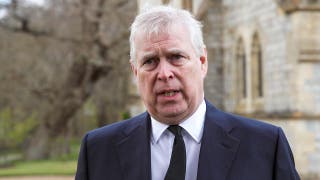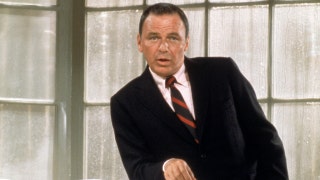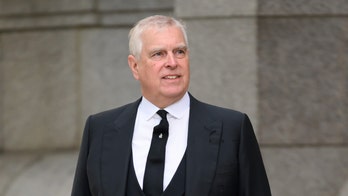Led Zeppelin guitarist Jimmy Page's legendary dragon axe revived by Fender
Fender instruments on Wednesday gave the public its first look at its recreation of a Telecaster guitar that Page once painted with a dragon. Guitar hero Page had first-hand involvement in the recreation.
Attorneys for Led Zeppelin are gearing up for another battle in the iconic band’s ongoing legal bout over whether or not they allegedly ripped off the popular intro to their 1971 song “Stairway to Heaven.”
The classic rock group’s lawyers will meet before a federal appeals court in an attempt to avoid going to a second trial – with a dispute over whether sound recordings created before they gained federal copyright protection should be played for jurors likely being at the forefront of the high-profile suit.
LED ZEPPELIN FACES RETRIAL IN 'STAIRWAY TO HAVEN' COPYRIGHT LAWSUIT
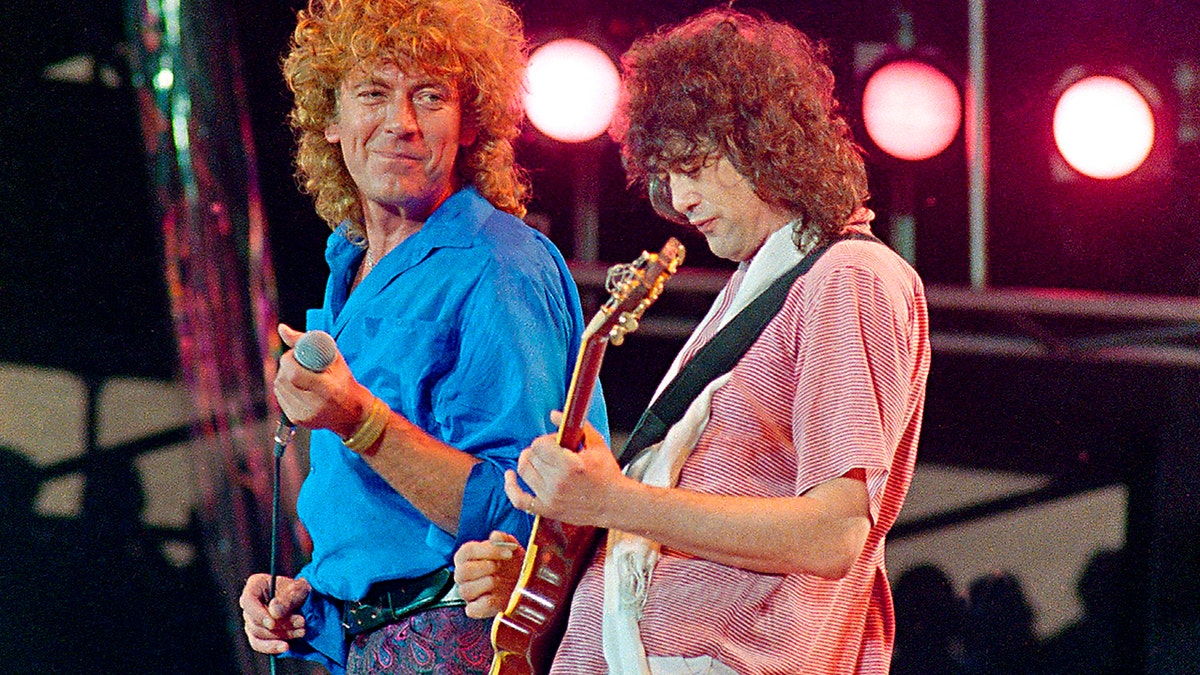
In this July 13, 1985 file photo, Led Zeppelin bandmates, singer Robert Plant, left, and guitarist Jimmy Page, reunite to perform for the Live Aid famine relief concert at JFK Stadium in Philadelphia. (Associated Press)
Led Zeppelin was sued in May 2014 by an heir of Spirit songwriter Randy Craig Wolfe, who claimed that “Stairway” infringes on his 1968 instrumental piece, titled, “Taurus,” according to the Hollywood Reporter.
THE GREATEST ROCK AND ROLL BANDS OF ALL-TIME ARE...?
In June 2016, a judge ruled in Led Zeppelin’s favor after a jury delivered its verdict in the highly-publicized trial saying that while they believed Jimmy Page and Robert Plant heard “Taurus” before creating “Stairway,” they couldn’t find substantial similarities between the projects.

Robert Plant, left, and Jimmy Page performing live onstage (Photo by Robert Knight Archive/Redferns)
It wasn’t until September 2018 that Wolfe's estate, via plaintiff Michael Skidmore, was awarded another trial by the 9th Circuit as the panel determined that the jury presiding over the proceedings had been improperly lectured about unprotected musical elements and originality, according to THR.
The court also maintained that despite “Taurus” being created before sound recordings were granted federal copyright protections, the record should have been played for the jury because hearing it and observing Page’s demeanor while listening to it would have been vital in reaching a determination.
LED ZEPPELIN GUITARIST JIMMY PAGE'S LEGENDARY DRAGON AXE REVIVED BY FENDER
The 9th Circuit said Monday that many of its active and non-recused judges voted to rehear the case en banc.
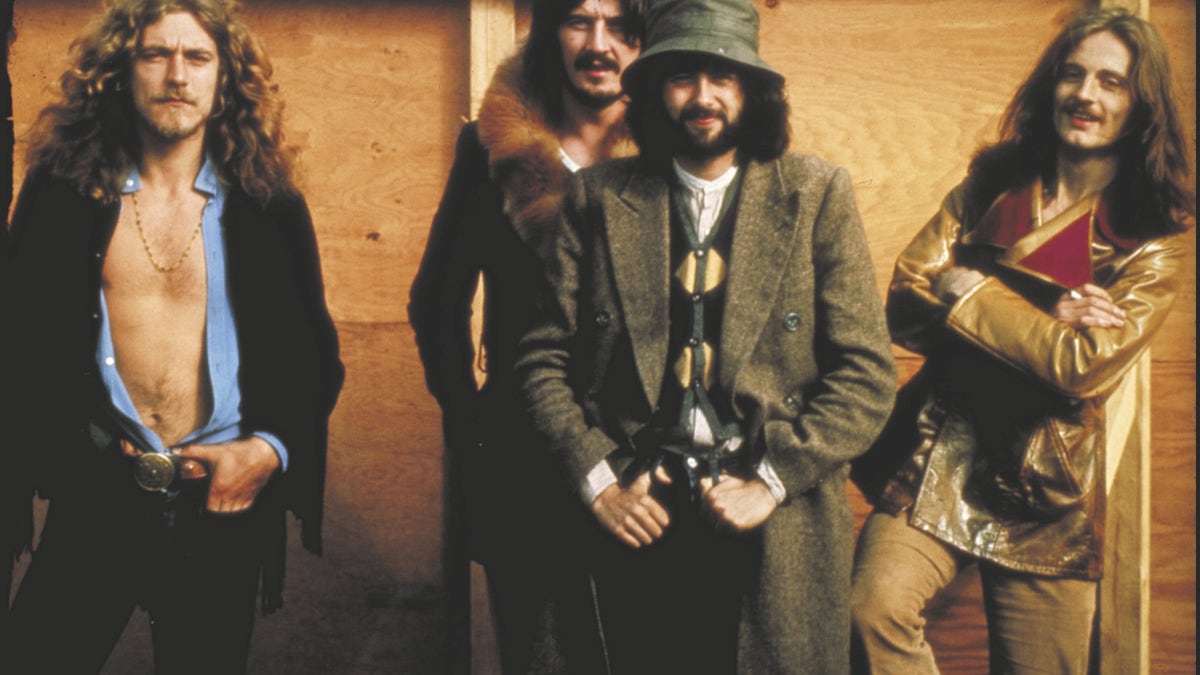
Led Zeppelin Bath Festival (Robert Plant, John Bonham, Jimmy Page, John Paul Jones (Chris Walter/WireImage for Getty)
"Respectfully, the decision errs in faulting the district court for omitting a selection-and-arrangement instruction even though plaintiff objected to the district court giving it, and for instructing — correctly — that copyright does not protect public domain elements,” Zeppelin lawyer Peter Anderson said of the matter. “The decision also errs because more probably than not the verdict would have been the same. The errors warrant en banc review because if left uncorrected they allow a jury to find infringement based on very different uses of public domain material and will cause widespread confusion in copyright cases in this Circuit."
CLICK HERE TO GET THE FOX NEWS APP
Additionally, Skidmore’s attorney Francis Malofiy retorted: "Nearly every song composed from 1909 to 1978, excepting classical music, was composed on instruments, not sheet music. The lead sheets submitted to the Copyright Office are complete enough to identify the songs, but almost never consist of all the notes in the musical compositions. ... There is no evidence, no statutory text, and no reason to believe that Congress ever intended that an author converting his common law copyright to a federal copyright by registration could possibly shrink/modify the scope of his already existing copyright."
Attorneys for both sides are set to argue during the week of Sept. 23.


